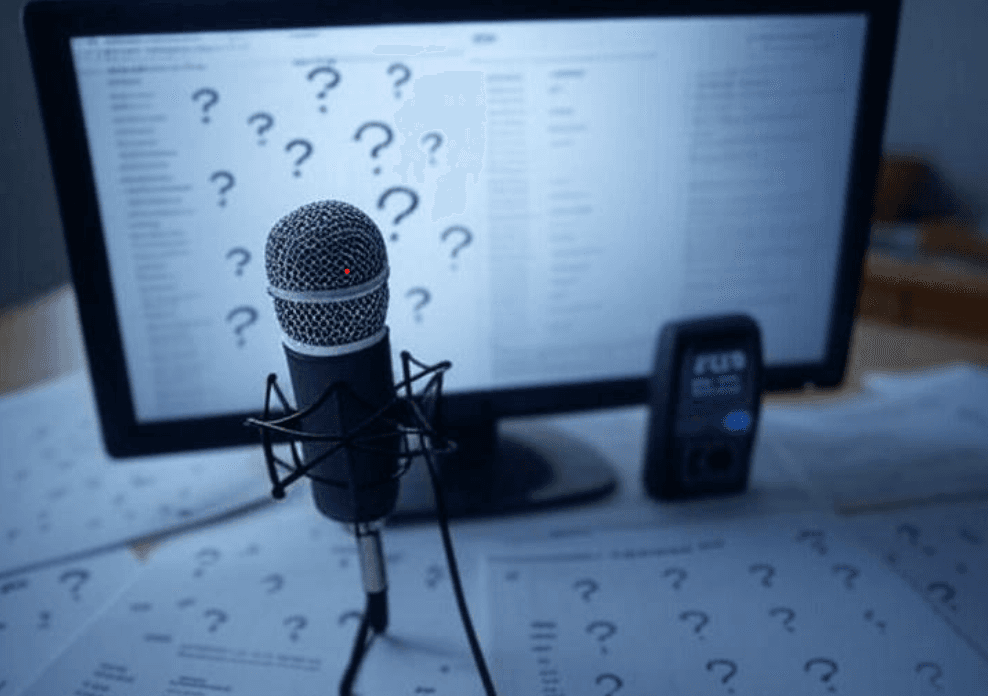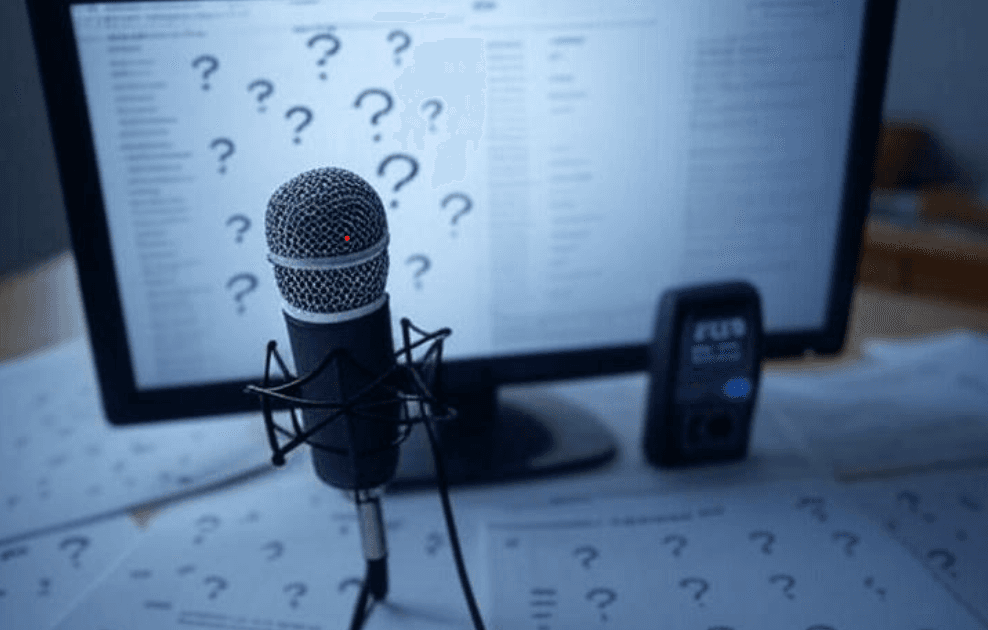Here’s a frustrating reality: According to official IELTS data, approximately 42% of test-takers score below Band 6.5 in Speaking-the most unpredictable section of the exam. These candidates often excel in Reading and Listening but freeze when facing a real examiner. The result? Wasted test fees ($250+ per attempt), delayed university applications, and crushed immigration dreams. If you’ve ever felt your mind go blank mid-sentence or struggled to speak for two minutes straight, you’re not alone-and more importantly, this is 100% fixable with the right IELTS Speaking practice strategy.
TL;DR: Your IELTS Speaking Practice Action Plan
- Understand the Format: The test lasts 11-14 minutes across three parts (small talk, 2-minute speech, discussion). Know exactly what examiners assess: Fluency & Coherence, Lexical Resource (vocabulary range), Grammatical Range & Accuracy, and Pronunciation.
- Practice Out Loud Daily: Silent reading won’t build speaking muscles. Dedicate 15-30 minutes daily to answering sample questions while recording yourself.
- Stop Memorizing Scripts: Examiners instantly recognize memorized answers and may penalize you. Focus on flexible speaking patterns instead.
- Simulate Real Conditions: Use AI-powered tools to practice under timed, exam-like pressure-it’s the fastest way to build confidence.
- Target Your Weaknesses: Get detailed feedback on grammar errors, unnatural pauses, and vocabulary misuse. Generic practice won’t move you from Band 6.0 to Band 7.5.
- Master Part 2 Structure: Use the one-minute preparation to create a simple 3-4 point outline, then speak naturally around it.
Why Traditional IELTS Speaking Practice Fails (And What Actually Works)
The $250 Mistake: Why Test-Takers Keep Failing Speaking
Most candidates approach IELTS Speaking practice the wrong way. They watch YouTube videos, memorize sample answers, and think they’re ready. Then test day arrives, the examiner asks a slightly different question, and everything falls apart.
The problem isn’t effort-it’s method. Speaking is a performance skill, not a knowledge test. You can’t improve by passive consumption. According to research by Cambridge Assessment English, speaking fluency develops through active production with immediate corrective feedback, not through listening or reading alone.
Here’s what ineffective practice looks like:
- Reading sample answers without speaking them
- Practicing without timing yourself
- Never recording or reviewing your performance
- Avoiding topics you find difficult
- Studying alone with zero feedback

What the IELTS band score system Actually Measures
Before you start practicing, understand what examiners score. The IELTS Speaking section assesses four criteria equally:
| Criterion | What It Means | Common Mistake |
|---|---|---|
| Fluency & Coherence | Speak smoothly without long pauses; connect ideas logically | Over-rehearsing causes robotic delivery |
| Lexical Resource | Use a wide range of vocabulary naturally and accurately | Using advanced words incorrectly |
| Grammatical Range & Accuracy | Mix simple and complex sentences with few errors | Sticking only to simple grammar to avoid mistakes |
| Pronunciation | Be clearly understood; use natural intonation and stress | Obsessing over accent instead of clarity |
Each criterion is scored 0-9. Your Speaking band is the average of these four scores. This means you can’t ignore any single area-you need balanced improvement across all four.
The 3-Part Structure: What Happens During Your IELTS Speaking Test
Part 1: Introduction & Interview (4-5 minutes)
The examiner starts with simple questions about familiar topics: your work, studies, hometown, hobbies, daily routine, or family. This feels like casual conversation, but examiners are already scoring you.
Sample questions:
- “Do you work or study?”
- “What do you like about your hometown?”
- “Do you prefer texting or calling friends?”
Strategy: Answer naturally with 2-3 sentences per question. Don’t give one-word answers, but don’t launch into a memorized speech either. Show you can chat comfortably in English.
Part 2: Long Turn (3-4 minutes including preparation)
This is where many candidates panic. You receive a topic card with a task and bullet points. You get exactly one minute to prepare, then must speak for 1-2 minutes without interruption.
Example topic card:
“Describe a time when you helped someone. You should say:
- Who you helped
- How you helped them
- Why you decided to help
- And explain how you felt afterwards”
The examiner then asks 1-2 follow-up questions.
Strategy: Use your preparation minute wisely. Write 3-4 quick notes (not full sentences), then speak naturally around those points. Learn more about mastering IELTS Speaking Part 2 with proven structural approaches.
Part 3: Two-Way Discussion (4-5 minutes)
The examiner asks more abstract questions related to your Part 2 topic. This tests your ability to explain opinions, analyze issues, and discuss ideas at a deeper level.
Example questions:
- “Why do you think people are less likely to help strangers nowadays?”
- “Should governments encourage volunteering?”
- “How has technology changed the way people help each other?”
Strategy: Think like you’re having an intellectual conversation. Use phrases like “From my perspective…” or “One significant factor is…” to show sophisticated communication. Develop your ideas with examples and reasoning.
The 5 Non-Negotiable Rules for Effective IELTS Speaking Practice
Rule 1: Always Practice Out Loud (Even If You Feel Ridiculous)
Your brain and mouth need to work together in real-time. Mental rehearsal doesn’t build the neural pathways required for fluent speech.
Action steps:
- Set a daily 15-minute speaking alarm
- Choose a random topic card from official IELTS materials
- Record yourself answering without stopping
- Play it back and note moments where you hesitated, used filler words excessively, or made grammar errors
If speaking alone feels strange, narrate your daily activities in English: “I’m making coffee now. I prefer it strong with a little milk. My morning routine usually starts at 7 AM…” This builds automatic English thinking.
Rule 2: Record Everything and Analyze Ruthlessly
You can’t improve what you don’t measure. Recording reveals problems you’d never notice otherwise: repetitive vocabulary, grammatical patterns you constantly get wrong, or unnatural pauses.
What to listen for:
- Filler words (um, uh, like, you know)
- Long pauses over 3 seconds
- Repetition of the same vocabulary
- Grammar mistakes (especially verb tenses)
- Monotonous intonation
Recording your practice but have no one to review it? Langogh’s AI Virtual Speaking Examiner analyzes your recordings in seconds, pinpoints exactly where you lost fluency or made errors, and provides examiner-level feedback. No more guessing what went wrong.
Start Your Free AI Speaking Test Now →
Rule 3: Stop Memorizing-Start Flexing
Examiners can spot memorized answers instantly. They’re trained to notice unnatural phrases, robotic delivery, and responses that don’t quite match the question. If they suspect memorization, they may interrupt and ask an unexpected question, causing you to crash.
Instead, memorize flexible frameworks and vocabulary chunks you can adapt to any topic.
Flexible framework for describing experiences:
- Set the scene (when/where)
- Explain what happened (main events)
- Discuss the outcome or your feelings
- Reflect on significance
Example vocabulary chunks:
- “This reminds me of a time when…”
- “The experience taught me that…”
- “Looking back, I realize…”
- “What made it memorable was…”
These chunks sound natural and work across hundreds of topics.
Rule 4: Simulate Real Test Conditions Weekly
Comfortable practice at home won’t prepare you for test-day pressure. Adrenaline changes everything-your mind races, you forget simple words, and time feels distorted.
Take AI-powered IELTS mock tests that replicate the exact timing, question difficulty, and pressure of the real exam. Langogh’s Virtual Speaking Examiner asks follow-up questions based on your answers, just like a real examiner would.
Weekly simulation routine:
- Saturday morning: Full Speaking test simulation (12 minutes)
- Review recording and AI feedback immediately
- Note your top 3 weaknesses
- Spend the week targeting those specific areas
- Repeat next Saturday and measure improvement
Rule 5: Build Topic-Specific Vocabulary Naturally
You need vocabulary breadth across common IELTS topics: technology, education, environment, health, work, travel, and culture. But don’t memorize word lists-it won’t stick.
Instead, engage with English content on topics you find genuinely interesting.
Smart vocabulary building:
- Listen to podcasts on topics you’re curious about
- Watch YouTube videos (with subtitles first, then without)
- Read short articles and underline 5 useful phrases
- Use those phrases in speaking practice the same day
When you encounter a useful word or phrase, say it out loud 5 times immediately. Then use it in a sentence about your own life. This creates stronger memory connections than flashcards ever will.
Common IELTS Speaking Mistakes That Cost You Half a Band (And How to Fix Them)
Mistake 1: Giving One-Word Answers in Part 1
❌ Examiner: “Do you like reading?”
You: “Yes.”
This forces the examiner to work harder and suggests limited English ability.
✅ Better: “Yes, I do. I especially enjoy reading thrillers because they keep me engaged. I usually read before bed to help me relax after a long day.”
The fix: Always aim for 2-3 sentences. Answer the question, add a reason or example, and provide a relevant detail.
Mistake 2: Stopping Before Two Minutes in Part 2
Many candidates speak for only 1 minute, then stop and look at the examiner nervously. This loses you points for fluency and task achievement.
The fix: During your one-minute preparation, jot down 4-5 quick points instead of 3. This gives you more content. If you’re running out of things to say, expand your final point: describe your feelings, explain the long-term impact, or compare it to similar experiences.
Mistake 3: Using Advanced Vocabulary Incorrectly
Trying to impress examiners by forcing in words you don’t fully understand backfires.
❌ “I have a very sophisticated relationship with my sister.” (Sophisticated means complex/refined, not close)
✅ “I have a very close relationship with my sister.”
The fix: Accuracy beats impressiveness. Use advanced vocabulary only when you’re 100% confident about the meaning and context. It’s better to use simpler words correctly than to misuse complex ones.
Mistake 4: Ignoring Pronunciation Clarity
You don’t need a British or American accent-examiners come from diverse backgrounds themselves. What matters is being clearly understood.
Common pronunciation issues that hurt comprehension:
- Swallowing final consonants (“nex” instead of “next”)
- Flat intonation (sounds robotic)
- Wrong word stress (“PHOtograph” vs. “phoTOgraphy” vs. “photoGRAPHic”)
The fix: Use speech-to-text apps (like Google Docs voice typing) in English. If the app consistently misunderstands certain words, your pronunciation needs work on those specific sounds.
Mistake 5: Panicking When You Don’t Understand a Question
It’s completely acceptable to ask for clarification. Examiners would rather repeat a question than watch you answer the wrong thing.
Polite ways to ask:
- “Sorry, could you repeat that?”
- “I’m not sure I understand-are you asking about…?”
- “Could you rephrase the question?”
This shows communication skill, not weakness.
Real Success Story: From Band 6.0 to Band 7.5 in 28 Days
Meet Priya, a 26-year-old software engineer from Bangalore applying for Canadian permanent residency. She needed Band 7.0 minimum in each section. Her first attempt: Reading 8.0, Listening 7.5, Writing 7.0, Speaking 6.0. That single 6.0 meant she couldn’t submit her application-and she’d just wasted $275 CAD.
The problem? Priya practiced by reading sample answers online and mentally rehearsing responses. She never actually spoke out loud or got feedback. When test day came, she froze during Part 2 and gave short, choppy answers in Part 3.
Her 28-day turnaround strategy:
- Week 1: Took Langogh’s AI Speaking diagnostic test to identify weak points (long pauses, repetitive vocabulary, limited grammatical range)
- Week 2-3: Daily 20-minute practice sessions with Langogh’s Virtual Examiner, focusing specifically on Part 2 timing and Part 3 idea development
- Week 4: Three full speaking simulations under timed conditions, analyzing AI feedback after each session
Result: Band 7.5 on her second attempt. The AI feedback pinpointed exactly where she hesitated, suggested stronger vocabulary alternatives, and helped her recognize grammatical patterns she kept getting wrong. No expensive tutoring needed-just focused, feedback-driven practice.
Stuck at Band 6.0 in Speaking and running out of time before your next test? Langogh’s AI Speaking Examiner gives you unlimited practice with instant, detailed feedback on all four scoring criteria. Practice Part 2 speeches 50 times if you need to-without paying tutor hourly rates.
Get Your Speaking Score Analysis Free →
Your 30-Day IELTS Speaking Practice Plan
Week 1: Foundation & Diagnosis
Daily tasks:
- Take one full AI Speaking mock test to establish your baseline
- Record yourself answering 3 Part 1 questions daily
- List your top 5 grammar mistakes from feedback
- Build vocabulary lists for 3 common topics (work, hobbies, technology)
Goal: Identify your specific weaknesses and get comfortable speaking English daily.
Week 2: Part 1 & Vocabulary Expansion
Daily tasks:
- Practice 10 different Part 1 questions out loud
- Learn and use 5 new vocabulary chunks naturally
- Record one 3-minute speaking session on any topic
- Review your recording and count filler words
Goal: Eliminate one-word answers, reduce filler words by 50%, and build topic-specific vocabulary.
Week 3: Part 2 Mastery & Timing
Daily tasks:
- Practice 2 different Part 2 topic cards daily
- Force yourself to speak for the full 2 minutes
- Focus on smooth transitions between points
- Record and review: Did you cover all bullet points?
Goal: Speak confidently for 2 minutes without awkward pauses, using clear structure.
Learn more strategies in our detailed guide on mastering IELTS Speaking Part 2.
Week 4: Part 3 & Full Simulations
Daily tasks:
- Practice Part 3 discussion questions (more abstract thinking)
- Take 3 full speaking simulations (all three parts together)
- Get feedback from AI or speaking partners
- Note improvement areas and practice those specifically
Goal: Handle abstract questions confidently, maintain fluency under pressure, and achieve target band score in full test conditions.
Traditional Tutors vs. AI-Powered Practice: The Honest Comparison
| Factor | Human Tutor | AI Speaking Coach (Langogh) |
|---|---|---|
| Cost per hour | $30-80 | Unlimited practice included |
| Availability | Scheduled sessions only | 24/7, practice anytime |
| Feedback speed | Next session (days later) | Instant, after every response |
| Consistency | Varies by tutor mood/style | Standardized to IELTS criteria |
| Bias | Subjective preferences | Objective AI analysis |
| Topic variety | Limited by tutor prep | Hundreds of official topics |
| Retakes | Pay again for each session | Unlimited retakes |
The truth? Both have value. But if you’re on a budget, need flexible timing, or want unlimited practice, AI-powered tools like Langogh deliver faster improvement at a fraction of the cost. Many successful test-takers now use AI for daily practice and human tutors for occasional strategy sessions.
To practice IELTS online effectively, combine the convenience of AI feedback with the structure of regular mock test practice.
Advanced Tips for Band 8.0+ Speaking
If you’re already scoring Band 7.0 and want to push higher, these advanced techniques make the difference:
Use Sophisticated Discourse Markers
Move beyond basic connectors (and, but, because) to show linguistic range:
- “Having said that…”
- “That’s precisely why…”
- “One could argue that…”
- “To put it another way…”
- “What’s particularly interesting is…”
Demonstrate Self-Correction Naturally
Band 8+ speakers can catch and fix their own mistakes smoothly:
- “I went there in… sorry, I mean I visited there in 2019.”
- “It was quite expensive-well, relatively expensive compared to…”
This shows linguistic awareness and control.
Use Idiomatic Language Appropriately
Avoid overusing idioms (sounds unnatural), but 2-3 per test adds native-like flavor:
- “It completely slipped my mind” (instead of “I forgot”)
- “Hit the books” (instead of “study hard”)
- “Get the hang of” (instead of “learn how to do”)
Vary Your Sentence Structure
Mix simple, compound, and complex sentences. Use different grammatical structures:
- Passive voice occasionally: “The project was completed ahead of schedule.”
- Conditional sentences: “If I had more time, I would have explored more options.”
- Relative clauses: “The teacher who inspired me most taught mathematics.”
Understanding IELTS One Skill Retake for Speaking
If you’ve already achieved your target scores in Reading, Listening, and Writing but failed Speaking (like Priya initially did), you might qualify to retake just the Speaking section through IELTS One Skill Retake. This option saves you time and money by not repeating sections you’ve already passed.
Eligibility requirements:
- You took the test at a participating center
- You’re retaking within 60 days of your original test
- You need the result for the same purpose (immigration, university, etc.)
This makes targeted IELTS Speaking practice even more valuable-you can focus 100% of your energy on the section that’s holding you back.
Pronunciation: Accent Doesn’t Matter, But These Things Do
Let’s clear up the biggest myth: You don’t need to sound British, American, Australian, or anything other than yourself. IELTS is an international test used in 140+ countries. Examiners assess how well you communicate, not what accent you have.
What actually matters:
- Individual sounds: Can people distinguish between “ship” and “sheep”? “Bet” and “bat”?
- Word stress: English relies heavily on stress patterns. “REcord” (noun) vs. “reCORD” (verb) are different words.
- Sentence intonation: Your voice should rise and fall naturally. Flat monotone sounds robotic and disengages listeners.
- Connected speech: Native speakers link words together (“What do you” becomes “Whadaya”). You don’t need to do this, but understanding it helps.
Practice technique:
Shadow native speakers. Play a short audio clip (TED Talk, podcast), pause after each sentence, and immediately repeat it, matching their rhythm and intonation. This trains your ear and mouth simultaneously.
Why You Don’t Need Perfect Grammar to Score Band 7.5
Here’s liberating news: Band 7.0 descriptors say you should use “a range of complex structures” with “frequent error-free sentences,” but “some errors may occur.” You don’t need perfection.
The key differences:
| Band 6.0 | Band 7.0+ |
|---|---|
| Makes frequent errors that sometimes cause misunderstanding | Makes some errors, but meaning is clear |
| Uses mainly simple sentences | Mixes simple and complex sentences |
| Limited range of structures | Uses various grammatical structures |
Focus on clarity and variety over perfection. If you make a small grammar mistake but the examiner understands you perfectly and you demonstrate good range overall, you can still score Band 7.5-8.0.
The Mental Game: Handling Test-Day Nerves
Even with perfect preparation, test anxiety can sabotage your performance. Here’s how to manage it:
Before the Test
- Visualize success: Mentally rehearse walking into the room, greeting the examiner confidently, and speaking smoothly
- Practice power poses: Research shows that standing in a confident posture for 2 minutes before stressful events reduces cortisol and improves performance
- Avoid cramming: Don’t study new material the night before-review familiar content only
During the Test
- Remember it’s a conversation: The examiner wants you to succeed-they’re not trying to trick you
- Breathe: If you feel panicked, take a visible breath before answering. It’s completely normal
- Focus on communication: Your goal is to share ideas clearly, not to perform perfectly
- Let mistakes go: If you make an error, don’t dwell on it or apologize excessively-just continue speaking naturally
How to Make English Thinking Automatic
The ultimate goal isn’t just speaking English-it’s thinking in English. When you eliminate the mental translation step, your fluency dramatically improves.
Techniques to build English thinking:
- Internal monologue: Narrate your thoughts in English throughout the day (“I should probably start dinner soon… what ingredients do I have?”)
- Dream journaling: Notice when you start dreaming in English-it’s a sign of linguistic integration
- Reduce native language exposure: During study periods, consume only English content (news, entertainment, social media)
- Think in English before speaking: When preparing Part 2 answers, plan your response in English from the start-don’t plan in your native language and translate
This takes time (usually 3-6 months of consistent practice), but it’s the difference between artificial fluency and natural communication.
Frustrated with generic speaking advice that doesn’t address YOUR specific mistakes? Stop wasting time on random practice. Langogh’s AI Speaking Examiner analyzes your unique error patterns-whether it’s grammar, vocabulary, pronunciation, or coherence-and gives you personalized improvement strategies that actually move your band score up.
Try AI Speaking Analysis Free Today →
Frequently Asked Questions
How long should I practice IELTS Speaking every day?
Aim for 15-30 minutes of focused speaking practice daily. Quality matters more than quantity-record yourself answering sample questions, analyze your mistakes, and gradually build speaking stamina for the 11-14 minute test.
Can I practice IELTS Speaking alone without a tutor?
Yes, absolutely. Use AI-powered tools like Langogh’s Virtual Speaking Examiner to get instant feedback on fluency, pronunciation, and grammar. Record yourself, practice with topic cards, and simulate real test conditions to build confidence independently.
Do I need a British or American accent to score high in IELTS Speaking?
No. IELTS examiners assess clarity and communication, not accent. Whether you speak with an Indian, Chinese, or any other accent, focus on clear pronunciation, natural intonation, and fluent delivery to achieve Band 7+.
What’s the biggest mistake test-takers make in IELTS Speaking?
Memorizing scripted answers. Examiners instantly recognize memorized responses and may interrupt or lower your score. Instead, practice speaking naturally about various topics, use flexible vocabulary, and focus on authentic communication.
How can I stop freezing up during IELTS Speaking Part 2?
Practice the one-minute preparation time religiously. Create a simple 3-4 point outline during that minute, then speak naturally around those points. Use Langogh’s AI Speaking Simulator to practice under timed conditions until it becomes automatic.
Final Thoughts: Your Speaking Score Is Within Reach
If you’re reading this, you’re already ahead of thousands of test-takers who think watching YouTube videos counts as practice. The IELTS Speaking test isn’t about being perfect-it’s about communicating clearly, confidently, and naturally under pressure.
The harsh truth? Most candidates fail Speaking not because their English is weak, but because they practice the wrong way. They don’t speak out loud enough. They don’t get feedback on their actual mistakes. They memorize instead of learning to think flexibly. They avoid the topics that scare them.
The good news? With focused, feedback-driven IELTS Speaking practice-the kind where you speak daily, record yourself, analyze weaknesses, and simulate real test conditions-you can move from Band 6.0 to Band 7.5 in just 4-6 weeks.
You don’t need expensive tutors. You don’t need to live in an English-speaking country. You need a structured practice routine, honest feedback, and consistent daily effort. Whether you use Langogh’s AI Speaking Examiner or find another method, the principle remains the same: active speaking practice with immediate correction beats passive consumption every single time.
Your immigration goals, university admission, and career opportunities are waiting on the other side of this test. Don’t let the Speaking section be the bottleneck that holds you back. Start practicing today-not tomorrow, not next week-and make English communication your strength, not your weakness.
Ready to stop guessing and start improving? Your Band 7.5+ Speaking score begins with your next practice session.
Frequently Asked Questions
Find answers to common questions about this topic
Aim for 15-30 minutes of focused speaking practice daily. Quality matters more than quantity-record yourself answering sample questions, analyze your mistakes, and gradually build speaking stamina for the 11-14 minute test.
Yes, absolutely. Use AI-powered tools like Langogh's Virtual Speaking Examiner to get instant feedback on fluency, pronunciation, and grammar. Record yourself, practice with topic cards, and simulate real test conditions to build confidence independently.
No. IELTS examiners assess clarity and communication, not accent. Whether you speak with an Indian, Chinese, or any other accent, focus on clear pronunciation, natural intonation, and fluent delivery to achieve Band 7+.
Memorizing scripted answers. Examiners instantly recognize memorized responses and may interrupt or lower your score. Instead, practice speaking naturally about various topics, use flexible vocabulary, and focus on authentic communication.
Practice the one-minute preparation time religiously. Create a simple 3-4 point outline during that minute, then speak naturally around those points. Use Langogh's AI Speaking Simulator to practice under timed conditions until it becomes automatic.




